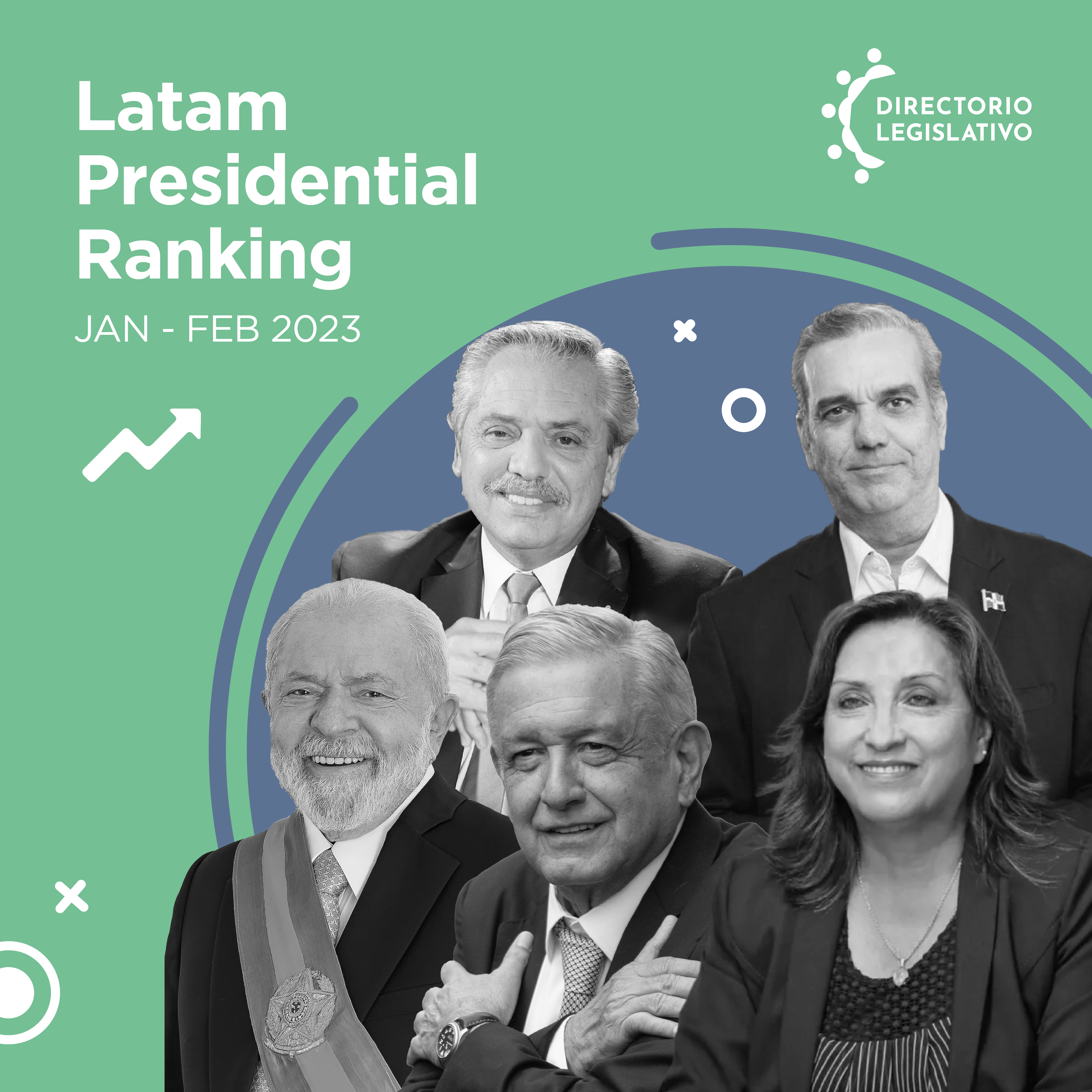Presidential approval data in Latin America, according to a new edition of the “Image of Power” report

In this new issue of Image of Power, we present the presidential approval data for the first two months of the year, and analyze some of the most outstanding processes.
Andrés López Obrador and Luis Abinader lead the approval ranking with rates exceeding 60%. In the middle range of the scale we find two new presidents, Lula da Silva (49%) and Gustavo Petro (44%), who has been in a steady decline since September. Among the presidents with lower approval we find Alberto Fernández (25%); Dina Boluarte (19%), who took office after the fall of Pedro Castillo, in the midst of strong social commotions; and Guillermo Lasso (17%).
Latin America is no stranger to the democratic regression that political systems around the world have been registering. Although the experience of authoritarian irruptions is not new in the region, what we are seeing now are endogenous and gradual political dynamics… not for this reason slow. The weakness of government institutions and the traditional channels of political representation, together with their growing social discredit, have given rise to leaders who justify decisions that are at odds with democratic institutionality on the basis of what the people need. In this report we analyze the risks involved in the emergence of the “authoritarian leader who complies” model.
We also review the legislative agenda in Brazil, Argentina, Colombia, Uruguay and Chile. On February 1, the new congressmen and congresswomen took office in Brazil. As was known, Lula faces a complex legislative landscape. His next tests? Getting Congress to debate and approve his most urgent stopgap measures before they expire and the new fiscal rule.
The electoral calendar started in January in Ecuador, with the defeat of the ruling party in the sub-national elections and a -not so expected- rejection of the constitutional plebiscite. These results further complicated the situation of President Guillermo Lasso, who is now facing a motion of censure in the Assembly, while once again wielding the “cross death” card, i.e. the dissolution of the legislative body and the call for elections. What elections are next?
In Paraguay, the Colorado Party is again emerging as the winner for the presidency, although it is not excluded that the Liberal Party will end up winning. Three out of five recent polls show Santiago Peña (former Minister of Finance of President Horacio Cartés) in the lead, while the remaining two polls show the Liberal Efraín Alegre (former President of the Chamber of Deputies and former Minister of Public Works of Fernando Lugo) in the lead. The possibility of a political alternation is an important issue.
In Guatemala, on the other hand, the presidential race to be defined next June 25 has two women as protagonists, Zury Ríos and Sandra Torres, whose path ended up being smoothed by a series of questioned judicial rulings.
Image of power is a bimonthly monitoring of presidential image carried out by the research team of the Fundación Directorio Legislativo based on the compilation of public opinion polls from multiple external sources in 18 countries of Latin America and the Caribbean. For this issue 81 surveys were taken between January and February 2023. The presidential approval data presented in this report do not express the opinion or institutional position of the Directorio Legislativo.
